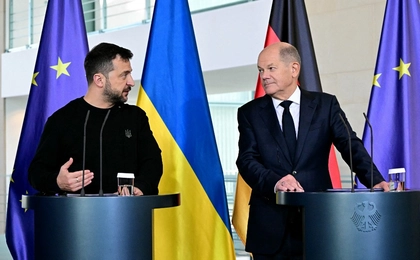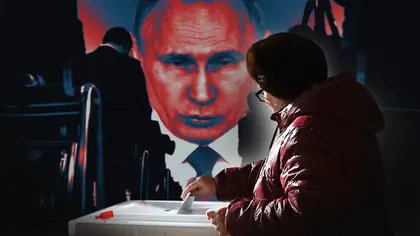Outwardly, Vladimir Putin appears to be firmly installed as Russia’s leader and his obtaining his sixth term as President this weekend, is not in doubt. However, is Putin’s Russia as stable as it appears? Or could there be unexpected changes in the cards soon to be dealt?
“I think that there is a perception in the West that because Putin's regime has survived and even thrived for so long, that it will continue to do so,” says Mark Katz, a professor of international relations, specializing in Russia, at George Mason University.
JOIN US ON TELEGRAM
Follow our coverage of the war on the @Kyivpost_official.
This would not be the first time, said Katz, where a country has had prolonged one-man rule.
The political transition after the leader’s inevitable demise can be especially difficult – and Russia is likely not immune to this phenomenon, Katz said.
In their day, dictators such as Romania's Nicolae Ceausescu, Egypt's Hosni Mubarak, Libya’s Muammar Qadaffi – or closer to home, the Soviet Union's Mikhail Gorbachev or Ukraine's Viktor Yanukovych, seemed to have all under control – until they suddenly did not.
When asked if Putin’s Regime is stable, Ilya Ponomarev, a Russian opposition leader who lives in Kyiv, replied saying: “Putin during last year suffered numerous military losses, barely escaped a coup, Kremlin was hit by enemy drones the first time ever, fighting spread to the territory of Russia for the first time in 80 years, he has to kill already captured opponents – and you say that this regime is stable? My stability looks quite different.”

Ukraine Slams Scholz After First Call With Putin in Two Years
Precisely because things are not going well in Russia, Ponomarev argues that “Putin is dangerous, but not because he is strong – he is dangerous because he is weak, and he knows it.”
Gregg Stebben, a steadfast supporter of Ukraine and of the Russian opposition and the author of a book with Ponomarev, “Does Putin Have to Die?: The Story of How Russia Becomes a Democracy after Losing to Ukraine,” thinks that the West well over-estimates how under wraps Putin has Moscow, saying, “I think Putin’s Regime is far weaker than what many realize. And that should increasingly heighten our levels of concern because as the house of cards begins to collapse, Putin may, like a cornered animal, become even more dangerous.”
This would be key as, “by helping to rid the world of Putin and Putinism, we can also help Russians to choose the direction their country will go in the post-Putin world,” says Stebben.
What could trigger the downfall of Putin? Katz said he sees “several possibilities for the destabilization of Russia,” among those events, he suggests:
- A serious health issue affecting Putin without a clear line of succession leading to competition among his lieutenants.
- A troop rebellion within the Russian army over the employment of tactics that have led to such high casualty levels among them.
- Unwillingness to serve among populations inside Russia that have borne a disproportionate number of casualties (such as Muslims and rural Russians).
- The necessity of calling up troops among Russian populations that have not been called up in such large numbers up to now (Muscovites and St. Petersburgers).
- The need to put on the front lines security service personnel who have been spared combat duty up to now.
Katz said, regarding the security services, that though Russian siloviki “don't mind forcing others to go into battle” they “don't want to do so themselves.”
Moscow, however, would likely be able to handle any one of these that were to singularly pop-up, however, “if some or all of them occur simultaneously, Putin’s regime could be in serious trouble,” Katz said.
Aside from political reasons that could lead to Putin’s downfall, there are significant structural problems in the Russian economy. Not only has Russia lost 12 percent of its oil-refining capabilities in the past week due to Ukrainian drones – a significant problem for a nation that’s budget is 23 percent based on oil revenues, but the ruble has also weakened.
One economist, Volodymyr Lugovskyy of Indiana University, recently told Kyiv Post that he is “not alone in expecting the ruble to fall badly within a month or so after ‘elections.’” Inflation, or hyperinflation, is a known risk for any government.
Though Putin will likely feel like a champion being “elected” for the sixth time on Sunday, there is something rotten in Moscow – and reason to not sleep too deeply.
You can also highlight the text and press Ctrl + Enter






